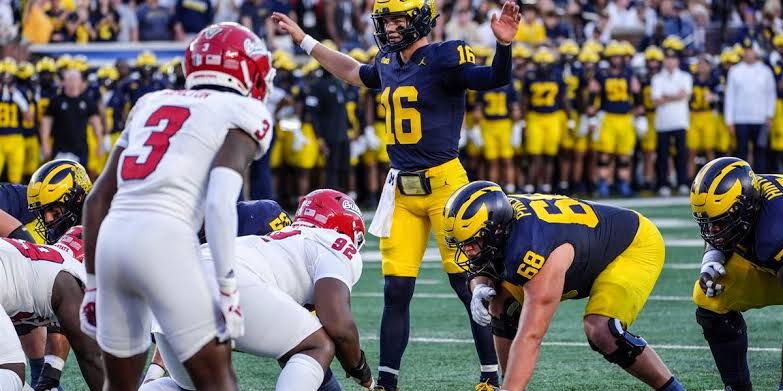Michigan’s recent 38-17 loss to Oregon highlighted both missed opportunities and critical lessons for the Wolverines. Facing a tough opponent, Michigan had several chances to tighten the game, yet costly mistakes
ultimately kept them from staying competitive. Here’s a deeper dive into the key points Michigan must address moving forward.
First, Michigan had multiple missed opportunities that could have made the game closer. A standout example was their defensive breakdown in the final 41 seconds of the first half, allowing Oregon a touchdown shortly
after Michigan’s own score, bringing the game to 21-10. Another costly mistake was a special teams penalty for an illegal formation on a critical third-down stop, which granted Oregon another chance. Late in the game,
Michigan’s trick play on a crucial fourth down fell flat, with Alex Orji tossing the ball to Semaj Morgan, only for Morgan’s pass to end in an incompletion. Oregon was well-prepared for the play, which ultimately cost Michigan a
scoring opportunity that could have kept them within reach. The turnover on downs ended any realistic comeback, cementing the game’s outcome.
Michigan’s rushing strategy in the first half also played to Oregon’s strengths, initially failing to gain traction. Running plays that focused on lateral movement were easily neutralized by Oregon’s speed.
It wasn’t until the second half that Michigan began to integrate downfield passing, which opened up space for more direct and effective runs. This change in tactics allowed the Wolverines to move the ball better on the ground, highlighting the need for a more flexible offensive approach in the future.
